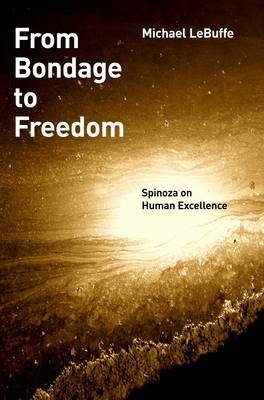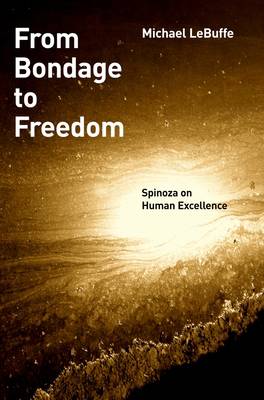
- Retrait gratuit dans votre magasin Club
- 7.000.000 titres dans notre catalogue
- Payer en toute sécurité
- Toujours un magasin près de chez vous
- Retrait gratuit dans votre magasin Club
- 7.000.0000 titres dans notre catalogue
- Payer en toute sécurité
- Toujours un magasin près de chez vous
83,95 €
+ 167 points
Format
Description
Spinoza rejects fundamental tenets of received morality, including the notions of Providence and free will. Yet he retains rich theories of good and evil, virtue, perfection, and freedom. Building interconnected readings of Spinoza's accounts of imagination, error, and desire, Michael LeBuffe defends a comprehensive interpretation of Spinoza's enlightened vision of human excellence. Spinoza holds that what is fundamental to human morality is the fact that we find things to be good or evil, not what we take those designations to mean. When we come to understand the conditions under which we act-that is, when we come to understand the sorts of beings that we are and the ways in which we interact with things in the world-then we can recast traditional moral notions in ways that help us to attain more of what we find to be valuable. For Spinoza, we find value in greater activity. Two hazards impede the search for value. First, we need to know and acquire the means to be good. In this respect, Spinoza's theory is a great deal like Hobbes's: we strive to be active, and in order to do so we need food, security, health, and other necessary components of a decent life. There is another hazard, however, that is more subtle. On Spinoza's theory of the passions, we can misjudge our own natures and fail to understand the sorts of beings that we really are. So we can misjudge what is good and might even seek ends that are evil. Spinoza's account of human nature is thus much deeper and darker than Hobbes's: we are not well known to ourselves, and the self-knowledge that is the foundation of virtue and freedom is elusive and fragile.
Spécifications
Parties prenantes
- Auteur(s) :
- Editeur:
Contenu
- Nombre de pages :
- 266
- Langue:
- Anglais
Caractéristiques
- EAN:
- 9780199937691
- Date de parution :
- 01-10-12
- Format:
- Livre broché
- Format numérique:
- Trade paperback (VS)
- Dimensions :
- 155 mm x 231 mm
- Poids :
- 399 g

Les avis
Nous publions uniquement les avis qui respectent les conditions requises. Consultez nos conditions pour les avis.






